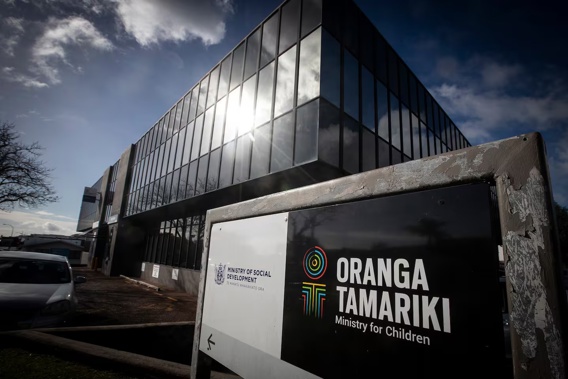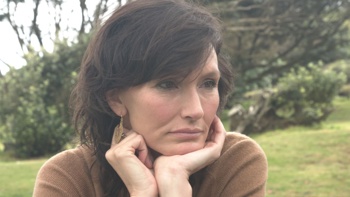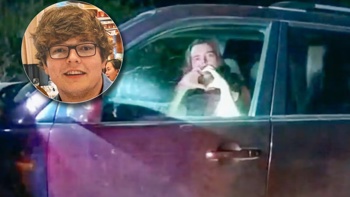
A North Island mother spent nine months waiting for Oranga Tamariki to assess allegations her children’s father had exposed them to sexual acts. Three years on, the Chief Ombudsman has ruled the agency acted wrongly and ‘contrary to law’. She speaks to Katie Harris about her battle for action.
Kelly* was shaking when she got the apology.
Final confirmation that the turmoil she had felt at the hands of the Government’s children’s agency was not unreasonable.
For the past few years, Kelly has had to live with botched Oranga Tamariki involvement with her whānau.
“It was the worst time of my life. I felt like I was a criminal.”
The agency’s mistakes meant she didn’t see her children enough, and had to wait months for Oranga Tamariki to address her allegations that the children’s father had exposed them to sexual acts.
Three years on, Chief Ombudsman Peter Boshier has ruled the agency was unreasonable and wrong in its decisions and actions, acting “contrary to law” in relation to the children’s alleged exposure to sexual acts — and Kelly’s access to her children.
Oranga Tamariki has accepted his findings, and deputy chief executive of service delivery Rachel Leota has acknowledged the harm caused by the agency’s “unacceptable” actions.
Chief Ombudsman Peter Boshier. Photo: RNZ /Dom Thomas
The complaint
Kelly said she was the one who initiated contact with Oranga Tamariki, with concerns for her children’s wellbeing while staying with their father.
But after nine months without progress on the complaint, she elevated her complaints to the ombudsman.
Boshier wrote in his decision that Kelly first reported her concerns to Oranga Tamariki in December 2020 — but it wasn’t until she made a second complaint two months later, in February 2021, that a report of concern was registered.
The initial social worker left in January 2021, and Boshier noted it wasn’t until September, when Kelly raised the issue for a third time, that a new social worker and their manager conducted an assessment.
“This is extremely concerning, considering that ... the new social worker created her first case note on the Oranga Tamariki system, the NCC’s [National Contact Centre] case note of the ROC [report of concern] was the most recent document logged, and a period of at least seven months had passed since the ROC through the NCC had been made.”
Boshier said during the initial report of concern assessment, social workers were required to consider the issues that had been raised, explore those with the notifier and develop a chronology to understand Oranga Tamariki’s history with the family.
“Oranga Tamariki omitted to follow its own report-of-concern process properly before deciding to take no further action.”
He said the rationale put forward by a social worker for not undertaking further action was the length of time that had passed, differing versions of events, positive reports about the father, and Oranga Tamariki being satisfied the children were safe with him.
“In my opinion, Oranga Tamariki acted unreasonably in determining that no further action was required.”
Boshier made several recommendations, all of which Oranga Tamariki accepted. These included an apology and providing comprehensive training to staff at the site.
Oranga Tamariki also agreed to carry out an ex gratia payment assessment for the mother.
Receiving the decision made Kelly feel she “wasn’t crazy” and that there was someone who could help.
“I just cried, I bawled my eyes out because I felt validated.
“I had a sense of relief come over me because I would have never [have] been able to get all that information that he has been able to ascertain.”
Through the report, Kelly said she also learned of a meeting that occurred with Oranga Tamariki and the Care and Protection Resource Panel, a statutory body that can provide advice to social workers and help co-ordinate services for families, on June 29, 2021.
The ombudsman said there was no record of the case being referred to the panel or rationale for it being made.

Kelly said she felt like a "criminal". Photo / Jason Oxenham
He said the minutes noted Kelly was not having access to her children and she was “not very interested”.
“This appears to be in direct contradiction to your wishes as communicated by your lawyer on 4 June 2021, and to the Family Group Conference review plan itself.”
Finding out that workers had claimed she didn’t seem interested in her children still cuts deep, and Kelly later wrote in a victim impact statement to the agency how “shocking and heart-wrenching” it was for her to learn of that meeting.
The ombudsman wrote later in the report that the two children were uplifted and day-to-day care given to Kelly after an incident between the father and one of the children.
“That gets me too. I was trying to tell them that I was not a risk to my children and they just ignored it and put my children back into risk,” Kelly said.
Closure
In October, Kelly met with the agency for the apology, which she said was delayed because she had wanted the social worker on the case to give it personally.
“Oranga Tamariki were opposed to that. They felt that it was better with the Wellington regional manager and the social worker’s manager.
“I get that, but for me, in my space, if I made decisions that were contrary to law and not within my policy, I would be the first one to put my hand up and be like I completely messed up.”
In the end, Kelly said they reached a compromise where the social worker attended the meeting, but did not speak.
“I didn’t realise how much trauma that I held. I was sitting there and I felt bad for being upset. Like I felt like I didn’t have a right to be upset because of the way they treated me.”
Chief executive of service delivery Rachel Leota said Oranga Tamariki received about 70,000 reports of concern in the past year and in most cases, those were recorded and responded to appropriately.
“However, we will always act on opportunities to improve. We have reminded our staff at the National Contact Centre about what is required for a report-of-concern intake. We have also implemented weekly learning sessions for all National Contact Centre staff to further enhance our quality-assurance framework.”

Oranga Tamariki chief executive of service delivery Rachel Leota says the agency "will always act on opportunities to improve". Photo / John Stone
In addition, Leota told the Herald the agency has introduced fortnightly forums for supervisors and other senior staff who then work with social workers to strengthen their practice when entering reports of concern.
While the apology has provided some relief, Kelly is yet to hear about where the assessment for an ex gratia payment is at.
Leota said the agency could not comment on specific ex gratia payments.
The agency did not respond to Herald questions regarding why the social worker did not personally apologise, why the agency took so long to address the claim about children being exposed to sexual acts, and whether it had offered counselling to the affected children.
Kelly said it was disappointing and upsetting the agency hadn’t responded to the specific questions.
Although the ruling is behind her and the children are in her care, the aftershocks of Oranga Tamariki’s mishandling are still reverberating for Kelly’s whānau.
“My daughter is going for counselling fortnightly.”
In telling her story, Kelly wants to show others in similar situations there is support and they are not alone.
“For me, because of my working experience, I have the upper hand to know there are neutral entities that can assist. But how many aren’t like me, in my situation.
“We need to change this system because it’s not just children that need protection, that are vulnerable. Mothers are vulnerable too.”
*Kelly’s name has been changed for legal reasons
Katie Harris is an Auckland-based journalist who covers social issues including sexual assault, workplace misconduct, crime and justice. She joined the Herald in 2020.
SEXUAL HARM
Where to get help:
If it's an emergency and you feel that you or someone else is at risk, call 111.
If you've ever experienced sexual assault or abuse and need to talk to someone, contact Safe to Talk confidentially, any time 24/7:
• Call 0800 044 334
• Text 4334
• Email [email protected]
• For more info or to web chat visit safetotalk.nz
Alternatively contact your local police station - click here for a list.
If you have been sexually assaulted, remember it's not your fault.
Take your Radio, Podcasts and Music with you









